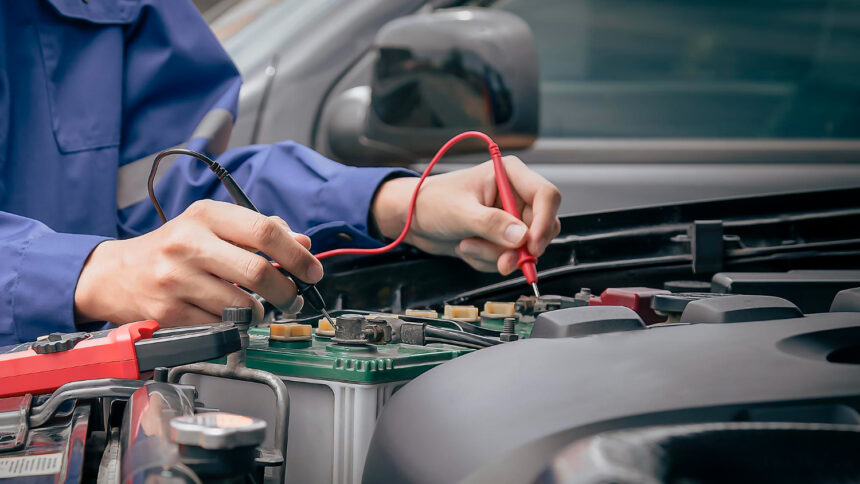An auto electrician plays a crucial role in keeping vehicles running smoothly. They specialize in diagnosing, repairing, and maintaining the electrical systems found in cars and trucks. Understanding how these systems work is essential for anyone who wants to ensure their vehicle remains dependable.
In today’s vehicles, electrical systems have become increasingly complex, integrating advanced technology that requires skilled professionals to manage. Auto electricians must be well-versed in various components, from wiring and batteries to sophisticated electronics. Their work not only keeps cars operational but also enhances safety features, ensuring that drivers receive the full benefits of modern automotive innovations.
For those considering a career in this field, the path often involves specialized training and continued education on the latest advancements. Becoming an auto electrician opens doors to a rewarding profession with strong job prospects as the demand for skilled technicians continues to rise in the automotive industry.
Key Takeaways
- Auto electricians specialize in vehicle electrical systems and repairs.
- They need a range of skills to handle modern automotive technology.
- Career pathways in auto electricity involve training and ongoing learning.
Fundamentals of Auto Electricity
Understanding auto electricity is essential for anyone involved in automotive repair. This area covers the core principles of how electrical systems function within vehicles and the critical tools used by auto electricians to troubleshoot and repair these systems.
Basics of Vehicle Electrical Systems
Vehicle electrical systems consist of various components that work together. The main parts include the battery, alternator, starter, and various sensors and control units.
- Battery: Provides the initial power to start the engine. It stores electrical energy.
- Alternator: Generates electricity to power the vehicle’s electrical systems while the engine runs.
- Starter: Uses battery power to turn the engine over.
- Wiring Harness: Connects all electrical components, allowing the flow of power and signals.
Understanding Ohm’s Law is also crucial as it helps in calculating voltage, current, and resistance in circuits. This knowledge allows an auto electrician to diagnose issues accurately.
Tools and Equipment for Auto Electricians
Auto electricians rely on specific tools and equipment to perform their work effectively. Key tools include:
- Multimeter: Measures voltage, current, and resistance in circuits, essential for diagnosing electrical issues.
- Oscilloscope: Analyses waveforms to help diagnose complex electrical problems.
- Wiring Diagrams: Visual aids that show how different electrical components connect and interact.
Additional tools include pliers, crimpers, and screwdrivers designed for electrical work. Keeping tools organized and in good condition is critical for efficiency and safety in the workspace. These instruments ensure that repairs are done accurately and help maintain the vehicle’s electrical systems.
Auto Electrician Essential Skills
Auto electricians need a blend of technical and problem-solving skills to excel in their jobs. Their work includes diagnosing issues, repairing circuits, and understanding electrical systems. The following skills are central to their effectiveness.
Diagnostic Techniques
Strong diagnostic techniques are crucial for auto electricians. They use tools like multimeters and diagnostic scanners to identify electrical faults in vehicles. This process involves checking various components, such as batteries, alternators, and fuses.
In addition, they must interpret wiring diagrams and analyze data to determine issues accurately. Being detail-oriented helps them spot inconsistencies and determine the root cause of problems quickly. This skill not only saves time but also enhances repair efficiency, leading to better outcomes for the vehicle owner.
Circuit Repair and Troubleshooting
Circuit repair and troubleshooting are central to an auto electrician’s role. They deal with complex electrical systems in cars, trucks, and buses. It’s essential for them to understand how these circuits work.
When repairing circuits, they often replace faulty wires, connectors, or components to restore functionality. Knowledge of soldering and splicing techniques is important here. A systematic approach allows them to trace issues back to their sources, ensuring long-lasting repairs. By being thorough, they minimize the chance of future electrical problems, enhancing vehicle safety and reliability.
Advanced Automotive Electrical Concepts
Understanding advanced automotive electrical concepts is crucial for modern auto electricians. These concepts include Electronic Control Units (ECUs) and the systems in hybrid and electric vehicles. Mastery of these topics allows technicians to diagnose and repair complex electrical issues effectively.
Electronic Control Units (ECUs) and Telematics
Electronic Control Units (ECUs) are essential components in modern vehicles. They function as the brain of the automobile, managing various systems like the engine, transmission, and braking. Each system may have multiple ECUs that communicate with each other to optimize performance.
Telematics combines telecommunications and GPS systems with vehicle networks. This technology allows for real-time data collection and analysis. It provides insights on vehicle diagnostics, driver behavior, and traffic conditions. This information is valuable for maintenance and safety improvements.
Hybrid and Electric Vehicle Systems
Hybrid and electric vehicles (HEVs and EVs) have distinct electrical systems. These include high-voltage batteries, electric motors, and regenerative braking systems. Understanding these elements is vital for any auto electrician.
High-voltage batteries store energy to power electric motors. Technicians must be trained to handle these batteries safely. Regenerative braking systems convert kinetic energy into electrical energy, recharging the battery while slowing down the vehicle. Knowledge of this technology is increasingly important as more EVs enter the market.
Career Path and Professional Development
Auto electricians can benefit greatly from various certifications and ongoing education. These avenues enhance their skills and help them stay updated with industry changes and technological advancements.
Certifications and Specializations
Certifications can significantly improve an auto electrician’s job prospects and skills. Many electricians pursue specialized certifications such as:
- ASE Certification: The National Institute for Automotive Service Excellence offers this recognized certification. It demonstrates proficiency in various areas of auto electrical work.
- Manufacturer Certifications: Many auto manufacturers offer training programs that focus on specific vehicle systems. Completing these courses can open new job opportunities.
Additionally, auto electricians may specialize in areas such as hybrid vehicles or advanced driver-assistance systems (ADAS). Specializing can lead to greater job security and higher pay due to the increasing complexity of modern vehicles.
Continuing Education and Industry Trends
Staying current is crucial for auto electricians. Industries are evolving with new technologies, so ongoing education is vital.
- Workshops and Seminars: Attending industry workshops keeps electricians informed about the latest techniques and tools.
- Online Courses: Online platforms offer flexible learning options, allowing electricians to study at their own pace.
Keeping an eye on industry trends such as electric and autonomous vehicles also helps electricians adapt. This knowledge enables them to offer better service and enhances their employability in a changing job market.






